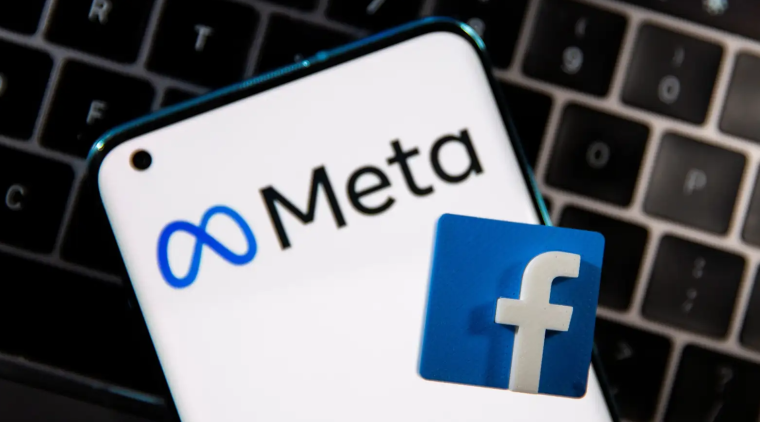
According to the UK’s banking and financial lobby group, more than half of all digital payment scams in the UK are tied to Meta and its social media sites.
Meta is the owner of Facebook, Instagram, WhatsApp, and now Threads. However, the data suggests that 61% of all APP scams in the UK are tied to these platforms.
"Meta singled out by UK financial lobby group over digital scams"
"UK Finance .. says 61% of all reported authorised push payment fraud by volume is connected to Meta"
Bullish datapoint for $META's UK market share?
(How much fraud is through MySpace?) https://t.co/bIKIwgkoDE pic.twitter.com/GXu3YdEL87— Librarian Capital (@LibrarianCap) July 9, 2023
UK Finance sent a letter to Jeremy Hunt, the chancellor, delivering data regarding the sources of payments fraud in Britain.
The data was broken down by volume and value, and it pointed out that in 61% of the cases, the push payment fraud incidents were connected to Meta.
UK Finance’s goal is to convince the local ministers to force tech firms to take responsibility for the increase in financial crime.
Earlier this year, the UK ministers announced a national fraud strategy in May. However, they also dropped a past proposal that would force tech firms to provide compensation for those who suffer losses from fraud.
How Does Authorized Push Payment Fraud Work?
Authorized push payment fraud is a type of fraud that escalated during the years of the pandemic.
They revolve around scammers tricking users into transferring money from the victim’s account to the scammer.
As mentioned, this type of fraud reached its all-time high during the COVID-19 pandemic, when people were forced to remain indoors and turned to social media and similar digital services.
Last year alone, over 485 million GBP was estimated to have been stolen using authorized push payment fraud. The most common approach would see the scammers send texts to their victims, pretending they were relatives in need of money.
Alternatively, they also pretended to be authorities, requesting that victims pay the money to settle fines and overdue taxes.
Most of these scams tend to urge victims to act hastily without thinking things through and many use scare tactics such as impersonating as a law enforcement officer investigating a crime.
They try to cause panic and rash actions, all with the goal of making the victim send the money before they could properly analyze the situation.
The letter issued by the lobby group came amid growing tension regarding which companies should bear responsibility for the rise in scams and fraud.
Banks, for example, have a voluntary agreement to try and increase the amount of money refunded by authorized push payment fraud victims. However, the rates tend to vary quite a bit.
Meanwhile, UK Finance believes that the problem should be addressed at the source, recommending that tech companies should take more responsibility.
It is social media and similar sites where these scams tend to take place.
According to TechUK’s CEO, Julian David,
Tech companies will continue to undertake further significant actions to cut fraud as set out in the recent UK fraud strategy and we are currently working at pace with the government and the financial services sector to address the issue of authorized push payment fraud.
Tech Firms Are Trying to Make it Difficult for Scammers to Use Them But Is It Enough?
It is also worth noting that numerous tech firms, like Microsoft and Meta, have toughened their approach to advertising in the UK. Any local firm that wishes to advertise with the tech giants must be approved by the local regulator, the FCA.
At the same time, they are blocking IP addresses and scanning images of fraudsters while trying to detect fraudulent behavior via machine learning.
A Meta spokesperson commented on the new development, stating that the company and its representatives don’t want anyone to fall victim to online criminals. This is why the platform has systems that seek to block scams.
They have FCA-authorized financial services advertisers as well. In addition, they run consumer awareness campaigns to teach people how to spot fraudulent behavior.
Finally, Meta said that it makes it simple for users to report any kind of scam or fraud in a few clicks.
Related Articles:
- TikTok is Getting Into Music Distribution in Big Way With SoundOn, Hiring A&R Lead
- Meta Finally Acts to Demystify Facebook and Instagram Recommendation Algorithms
- Meta to Hold Limit Use of Ad Data, Fearing More Regulator Crackdowns
What's the Best Crypto to Buy Now?
- B2C Listed the Top Rated Cryptocurrencies for 2023
- Get Early Access to Presales & Private Sales
- KYC Verified & Audited, Public Teams
- Most Voted for Tokens on CoinSniper
- Upcoming Listings on Exchanges, NFT Drops
